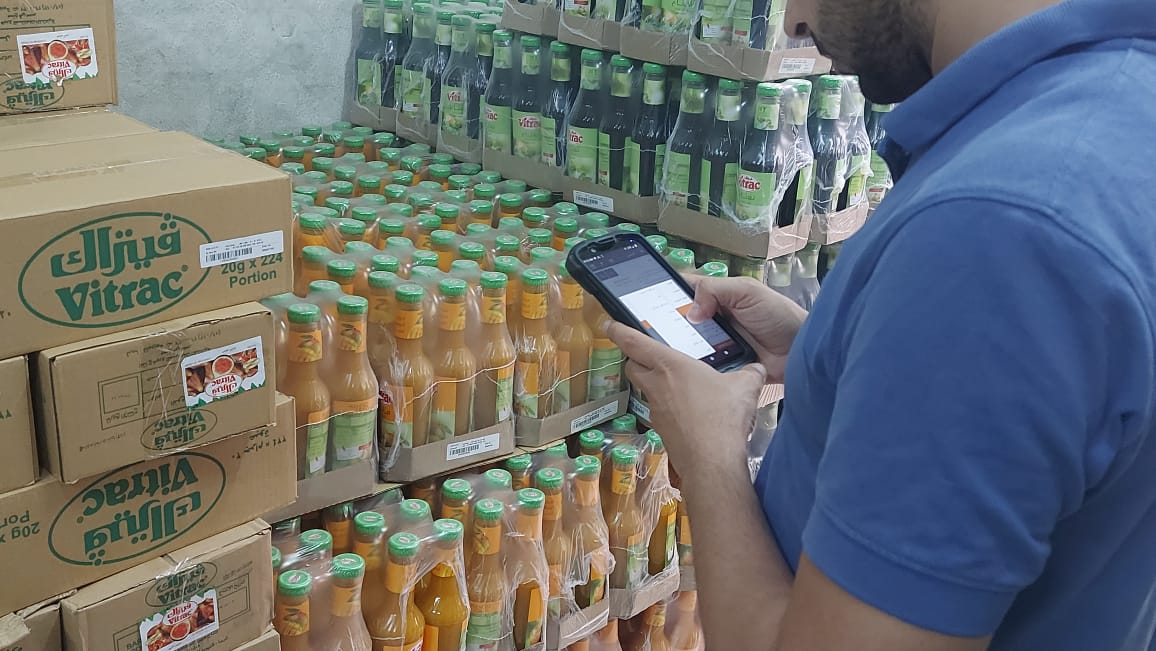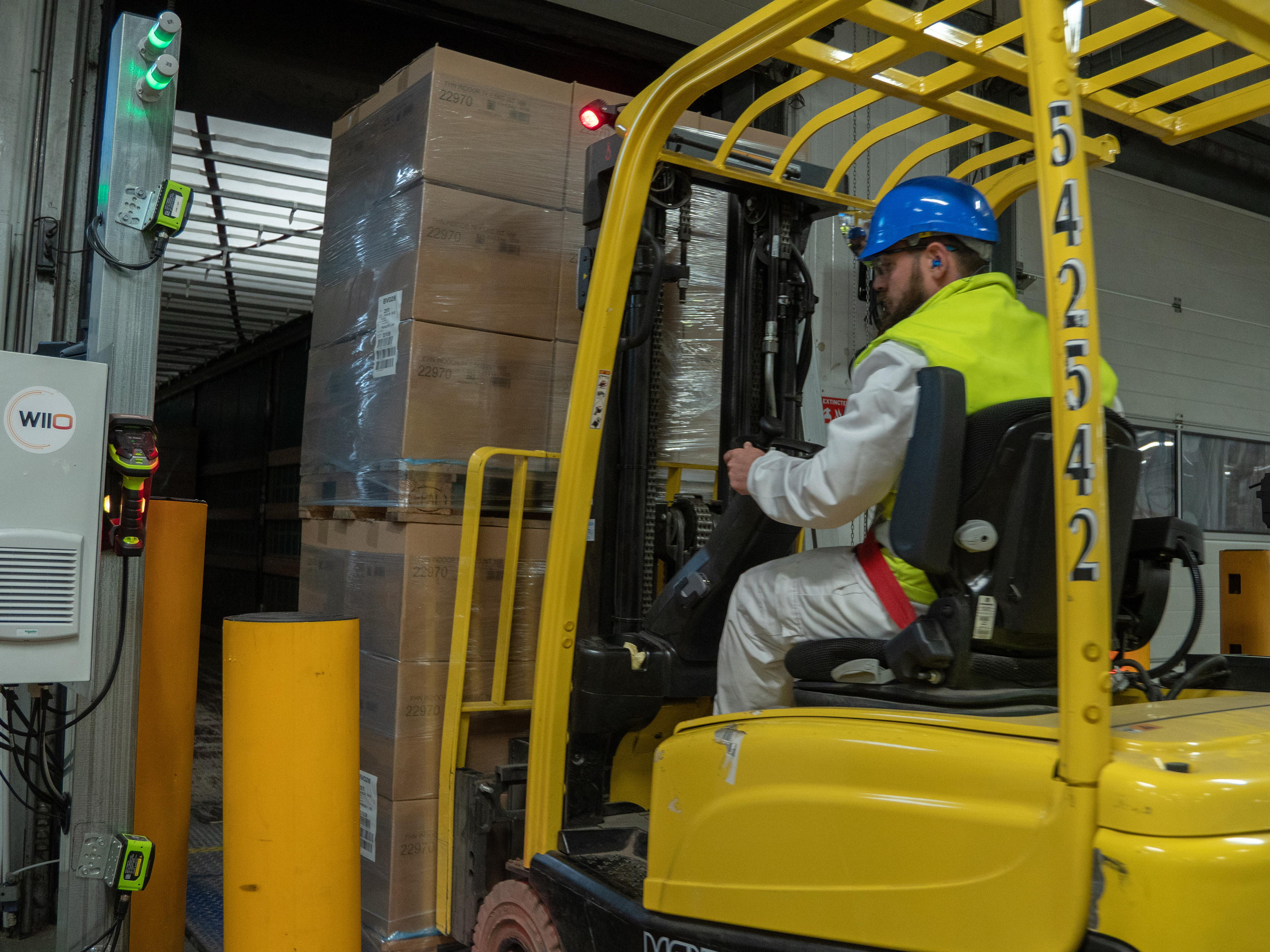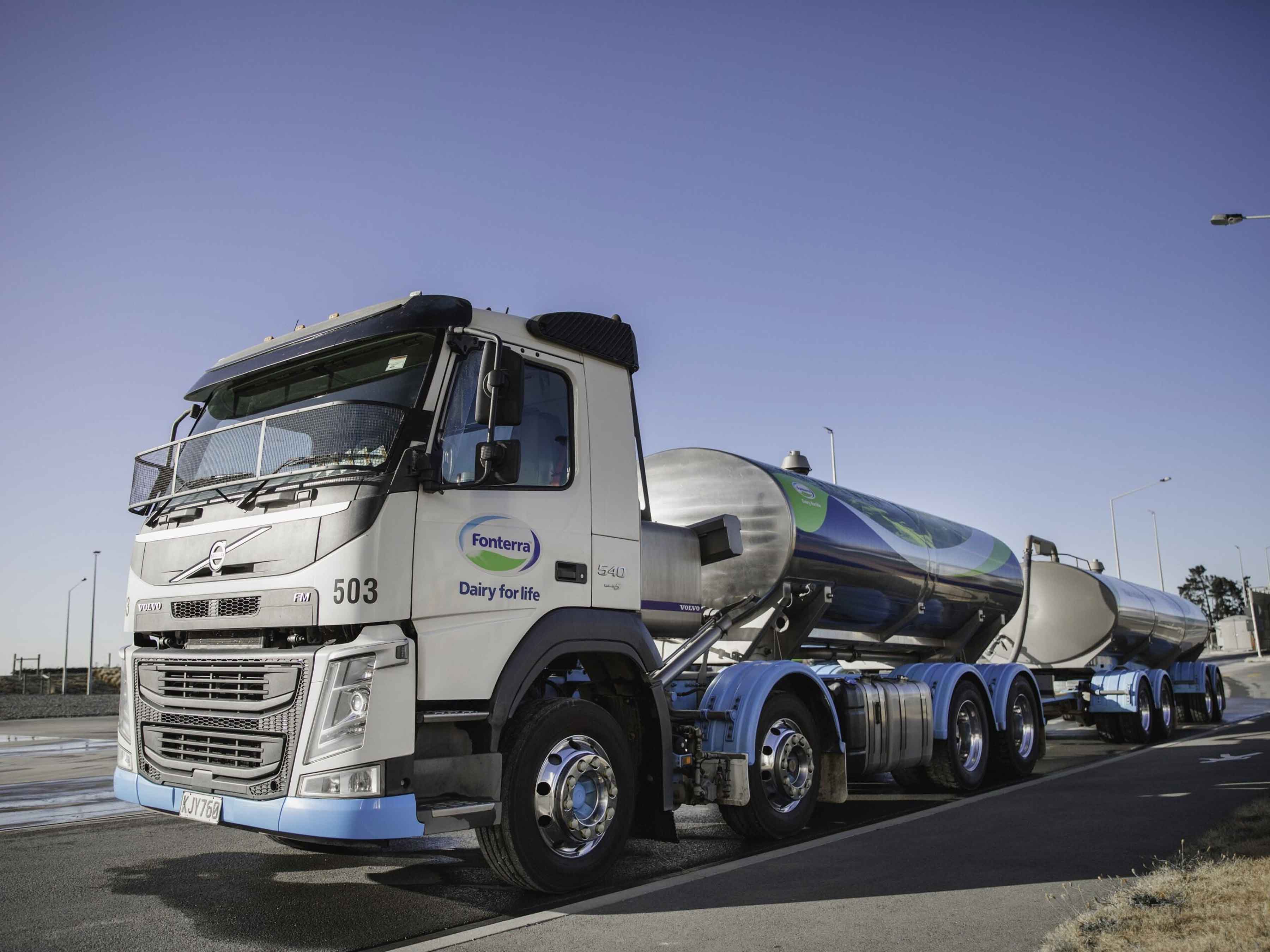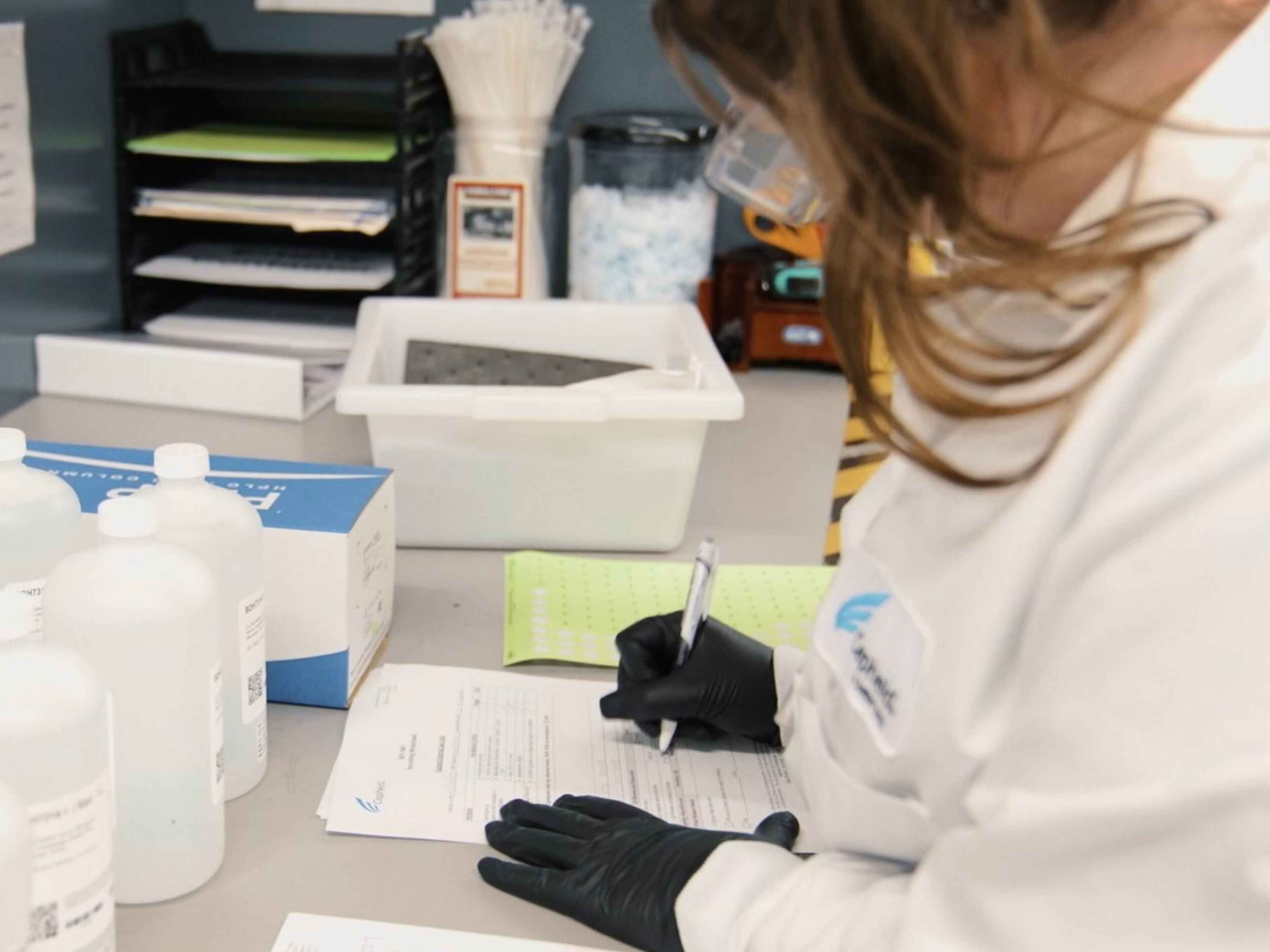Transform retail operations with Zebra’s retail technology solutions, featuring hardware and software for improving inventory management and empowering teams.
Streamline operations with Zebra’s healthcare technology solutions, featuring hardware and software to improve staff collaboration and optimize workflows.
Enhance processes with Zebra’s manufacturing technology solutions, featuring hardware and software for automation, data analysis, and factory connectivity.
Zebra’s transportation and logistics technology solutions feature hardware and software for enhancing route planning, visibility, and automating processes.
Learn how Zebra's public sector technology solutions empower state and local governments to improve efficiency with asset tracking and data capture devices.
Zebra's hospitality technology solutions equip your hotel and restaurant staff to deliver superior customer and guest service through inventory tracking and more.
Zebra's market-leading solutions and products improve customer satisfaction with a lower cost per interaction by keeping service representatives connected with colleagues, customers, management and the tools they use to satisfy customers across the supply chain.
Empower your field workers with purpose-driven mobile technology solutions to help them capture and share critical data in any environment.
Zebra's range of Banking technology solutions enables banks to minimize costs and to increase revenue throughout their branch network. Learn more.
Zebra's range of mobile computers equip your workforce with the devices they need from handhelds and tablets to wearables and vehicle-mounted computers.
Zebra's desktop, mobile, industrial, and portable printers for barcode labels, receipts, RFID tags and cards give you smarter ways to track and manage assets.
Zebra's 1D and 2D corded and cordless barcode scanners anticipate any scanning challenge in a variety of environments, whether retail, healthcare, T&L or manufacturing.
Zebra's extensive range of RAIN RFID readers, antennas, and printers give you consistent and accurate tracking.
Choose Zebra's reliable barcode, RFID and card supplies carefully selected to ensure high performance, print quality, durability and readability.
Zebra's rugged tablets and 2-in-1 laptops are thin and lightweight, yet rugged to work wherever you do on familiar and easy-to-use Windows or Android OS.
With Zebra's family of fixed industrial scanners and machine vision technologies, you can tailor your solutions to your environment and applications.
Zebra’s line of kiosks can meet any self-service or digital signage need, from checking prices and stock on an in-aisle store kiosk to fully-featured kiosks that can be deployed on the wall, counter, desktop or floor in a retail store, hotel, airport check-in gate, physician’s office, local government office and more.
Adapt to market shifts, enhance worker productivity and secure long-term growth with AMRs. Deploy, redeploy and optimize autonomous mobile robots with ease.
Discover Zebra’s range of accessories from chargers, communication cables to cases to help you customize your mobile device for optimal efficiency.
Zebra's environmental sensors monitor temperature-sensitive products, offering data insights on environmental conditions across industry applications.
Zebra's location technologies provide real-time tracking for your organization to better manage and optimize your critical assets and create more efficient workflows.
Enhance frontline operations with Zebra’s AI software solutions, which optimize workflows, streamline processes, and simplify tasks for improved business outcomes.
Empower your frontline with Zebra Companion AI, offering instant, tailored insights and support to streamline operations and enhance productivity.
The everything you need to rapidly and cost effectively develop high-performance AI vision applications on Zebra mobile computers.
Zebra Workcloud, enterprise software solutions boost efficiency, cut costs, improve inventory management, simplify communication and optimize resources.
Keep labor costs low, your talent happy and your organization compliant. Create an agile operation that can navigate unexpected schedule changes and customer demand to drive sales, satisfy customers and improve your bottom line.
Drive successful enterprise collaboration with prioritized task notifications and improved communication capabilities for easier team collaboration.
Get full visibility of your inventory and automatically pinpoint leaks across all channels.
Reduce uncertainty when you anticipate market volatility. Predict, plan and stay agile to align inventory with shifting demand.
Drive down costs while driving up employee, security, and network performance with software designed to enhance Zebra's wireless infrastructure and mobile solutions.
Explore Zebra’s printer software to integrate, manage and monitor printers easily, maximizing IT resources and minimizing down time.
Make the most of every stage of your scanning journey from deployment to optimization. Zebra's barcode scanner software lets you keep devices current and adapt them to your business needs for a stronger ROI across the full lifecycle.
RFID development, demonstration and production software and utilities help you build and manage your RFID deployments more efficiently.
RFID development, demonstration and production software and utilities help you build and manage your RFID deployments more efficiently.
Zebra DNA is the industry’s broadest suite of enterprise software that delivers an ideal experience for all during the entire lifetime of every Zebra device.
Advance your digital transformation and execute your strategic plans with the help of the right location and tracking technology.
Boost warehouse and manufacturing operations with Symmetry, an AMR software for fleet management of Autonomous Mobile Robots and streamlined automation workflows.
The Zebra Aurora suite of machine vision software enables users to solve their track-and-trace, vision inspection and industrial automation needs.
Zebra Aurora Focus brings a new level of simplicity to controlling enterprise-wide manufacturing and logistics automation solutions. With this powerful interface, it’s easy to set up, deploy and run Zebra’s Fixed Industrial Scanners and Machine Vision Smart Cameras, eliminating the need for different tools and reducing training and deployment time.
Aurora Imaging Library™, formerly Matrox Imaging Library, machine-vision software development kit (SDK) has a deep collection of tools for image capture, processing, analysis, annotation, display, and archiving. Code-level customization starts here.
Aurora Design Assistant™, formerly Matrox Design Assistant, integrated development environment (IDE) is a flowchart-based platform for building machine vision applications, with templates to speed up development and bring solutions online quicker.
Designed for experienced programmers proficient in vision applications, Aurora Vision Library provides the same sophisticated functionality as our Aurora Vision Studio software but presented in programming language.
Aurora Vision Studio, an image processing software for machine & computer vision engineers, allows quick creation, integration & monitoring of powerful OEM vision applications.
Adding innovative tech is critical to your success, but it can be complex and disruptive. Professional Services help you accelerate adoption, and maximize productivity without affecting your workflows, business processes and finances.
Zebra's Managed Service delivers worry-free device management to ensure ultimate uptime for your Zebra Mobile Computers and Printers via dedicated experts.
Find ways you can contact Zebra Technologies’ Support, including Email and Chat, ask a technical question or initiate a Repair Request.
Zebra's Circular Economy Program helps you manage today’s challenges and plan for tomorrow with smart solutions that are good for your budget and the environment.
The Zebra Knowledge Center provides learning expertise that can be tailored to meet the specific needs of your environment.
Zebra has a wide variety of courses to train you and your staff, ranging from scheduled sessions to remote offerings as well as custom tailored to your specific needs.
Build your reputation with Zebra's certification offerings. Zebra offers a variety of options that can help you progress your career path forward.
Build your reputation with Zebra's certification offerings. Zebra offers a variety of options that can help you progress your career path forward.

Bimbo Bakeries USA Improves Order Accuracy, Minimizes Waste
Bimbo Bakeries USA (BBU) is the largest bakery company in the United States. It operates 59 bakeries, employs more than 20,000 associates and distributes products through 11,000 sales routes throughout the U.S.
Zebra Success Story: Bimbo Bakeries USA
Overview: Manufacturing Challenge
Improve order accuracy to minimize waste without losing sales from understocking and empower front-line teams with greater visibility to real-time data.
Benefits / Outcomes
- Up to 30% reduction in forecast errors
- Modernized operations to help 20,000 associates maintain quality from the production line to store delivery
- Forecast consistency despite pandemic volatility
Customer
Bimbo Bakeries USA
Horsham, Pennsylvania/USA
Industry
Manufacturing
Solutions
About Bimbo Bakeries USA
Bimbo Bakeries USA (BBU) is the largest bakery company in the United States featuring iconic premium brands such as Sara Lee®, Entenmann’s® and Thomas’®. BBU operates 59 bakeries, employs more than 20,000 associates and distributes products through 11,000 routes that service the majority of store outlets offering baked goods in the U.S.
The Challenge
Baked goods manufacturers distribute products that are considered substitutable and cannot afford missed sales from out-of-stock items. The perishable nature of baked goods also demands rigorous stock management for the freshness that shoppers expect. As a result, manufacturers, like BBU, walk a fine line between waste due to overstocks and lost sales from out-of-stocks.
Even before the COVID-19 pandemic, the high variability of local demand, due to weather, events and store operations, magnified demand forecast errors. This led to missed sales due to understocking as the company worked to reduce food waste from overstock. BBU wanted to improve both its over and out-of-stock efforts, but not at the expense of each other.
Antuit.ai was the perfect collaborator for the complex and sizeable challenges of Ion. Their AI forecasting and fulfillment expertise, augmented by a custom-fit user interface, achieved a significant step-change in both our order accuracy and organizational productivity. And the best part is that we did not have to wait years to feel the business impact.
Morgan Smith, VP of DSD, Center of Excellence
The Solution
In addition to forecasting challenges, BBU recognized that major organizational obstacles stood in its way. It wanted to better coordinate a dozen fragmented regional bakeries and better connect with shoppers who expected the last two slices of their weekly loaf of bread to be as fresh as the first. BBU also sought to modernize their outdated operations using desktop calculators and manual spreadsheets and empower the company’s front-line workforce with tools to maintain the highest quality from the production line through store delivery.
To achieve the organizational transformation needed, BBU’s Vice President of Direct Store Delivery (DSD) Center of Excellence, Morgan Smith, directed an extensive program to ensure a terrific consumer brand experience. Smith wanted to better understand the challenges of veteran bakers on the production line as well as front-line workers such as DSD drivers. His findings included a new view of the production-to-consumer “chain of command” that inverted the order of importance and made everyday consumers the most important stakeholders, followed closely by the company’s front-line teams that directly serve them.
To support this new customer-driven orientation, BBU’s front-line workers needed purpose-built, data-driven innovations to help them do their jobs better and pass real-world insights “downward” to senior management.
Based on worker feedback on how an ideal solution would make their jobs easier, BBU introduced a new approach, christened Ion, which was anchored by a proprietary demand intelligence platform, envisioned to serve as a workplace assistant “for, from and by the front-line.”
Ion, with AI-driven demand forecasting, proved to be ahead of its time, delivering results well before the buzz from the latest AI tools hit the market.
Predictive Ordering for DSD Provides Greater Forecast Accuracy and Intuitive Workflows
Antuit.ai delivered a “perfect order” solution for Ion using a user interface that enabled better collaboration between planners and route operators that helped improve forecasting, delivered more accurate orders and scaled effectively to support 11,000 routes across the U.S.
To improve forecasting, antuit.ai applied a rigorous AI workflow to analyze demand and detect data outliers. BBU wanted to identify demand drivers and their impact, test for the hierarchy level that would drive the highest forecast accuracy and finally leverage machine learning to break down the forecast to the appropriate consumption level for ordering purposes.
Antuit.ai’s forecasting methodology considered more inputs–many captured directly from retailers and route drivers–and went beyond historically-driven base and promotion demand to include real- or near-real-time inputs, including weather, local events, store stocking constraints and actual point of sale (POS) data. As the technical engine behind Ion, antuit.ai’s AI-powered demand forecasting and predictive ordering technology helped right-size production and localize delivery on a SKU/store/week level by factoring in this more granular-level data.
For perishable food categories judged by sell-by dates and minimized food waste, Ion quickly solved the chronic front-line problem of overordering, which often resulted in the oldest products possible stocked on store shelves. Facilitating even the slightest incremental uptick such as selling one more loaf of bread or one more box of donuts can translate into a huge difference in net revenue.
The Zebra Difference: Outcome and Benefits
When grocery demand patterns became all but unrecognizable during the pandemic, Bimbo adapted its forecasting and production far more quickly—even if it meant “all-hands-on-deck” at every plant to fill the delivery trucks. Changes that may have once needed four months to implement were accomplished in as little as three weeks.
Based on Mean Average % Error (MAPE) data tracking for 6-week intervals occurring at the same point in time each year, over the 5 years that included the pandemic, BBU was able to achieve, and then maintain, a greater than 80% forecast accuracy despite extraordinary events impacting their consumers’ lives.
Antuit.ai’s team employed a strategic approach to implementation to identify and address any data and technological constraints and lay a strong base for a solution on which Ion could rely. Antuit.ai’s data, AI and delivery capabilities are all native to the cloud and scaled from a sample set to 11,000 routes within a matter of months.
Serving Fortune 1000 companies globally, antuit.ai–now part of Zebra Technologies–is rethinking the way retail and consumer products companies use AI to solve business problems. Antuit. ai offers solutions that inform the most important business decisions, empowering companies to digitally transform their businesses to achieve substantial business results.
Related Resources
Legal Terms of Use Privacy Policy Supply Chain Transparency
ZEBRA and the stylized Zebra head are trademarks of Zebra Technologies Corp., registered in many jurisdictions worldwide. All other trademarks are the property of their respective owners. ©2025 Zebra Technologies Corp. and/or its affiliates.




